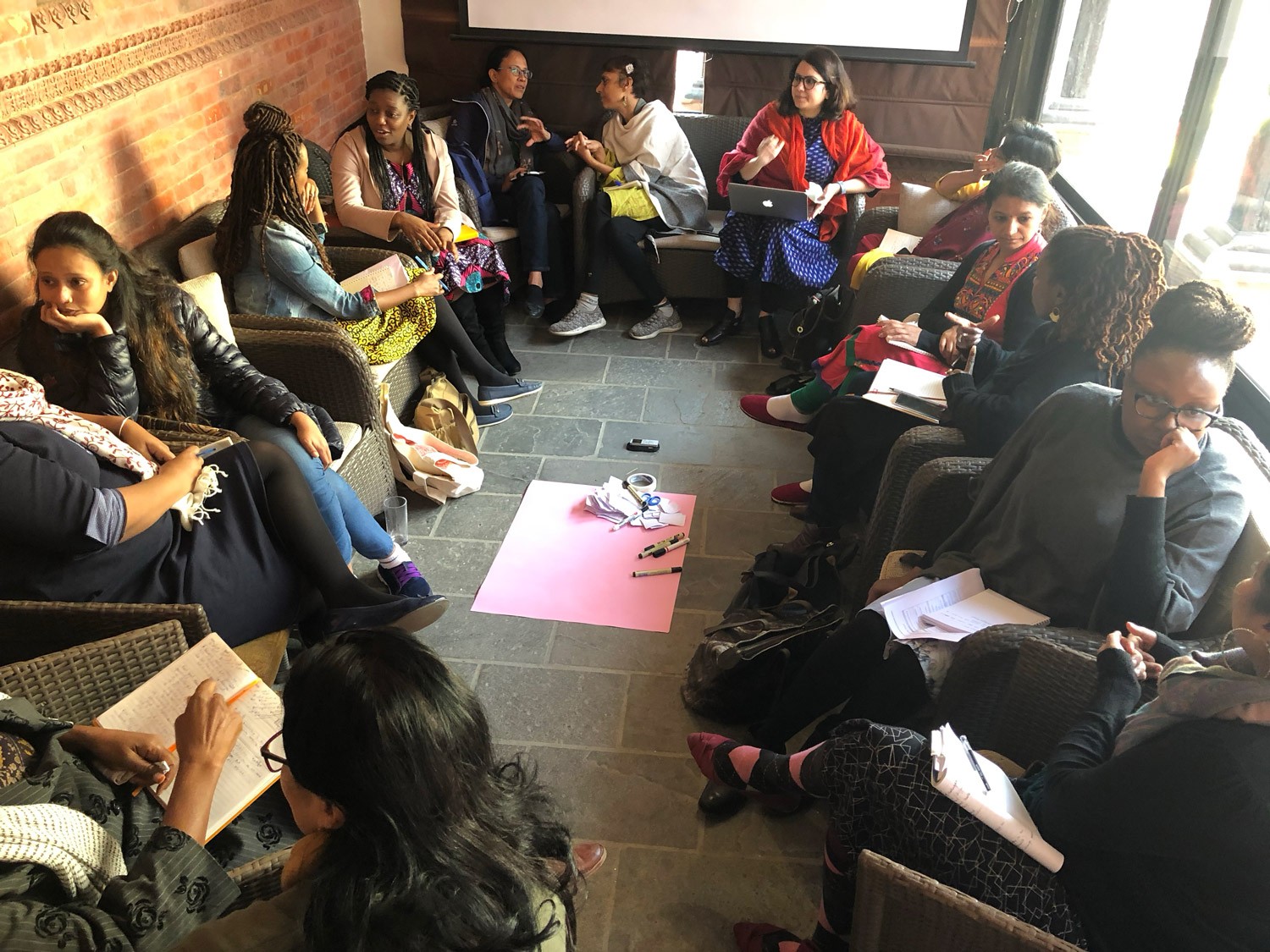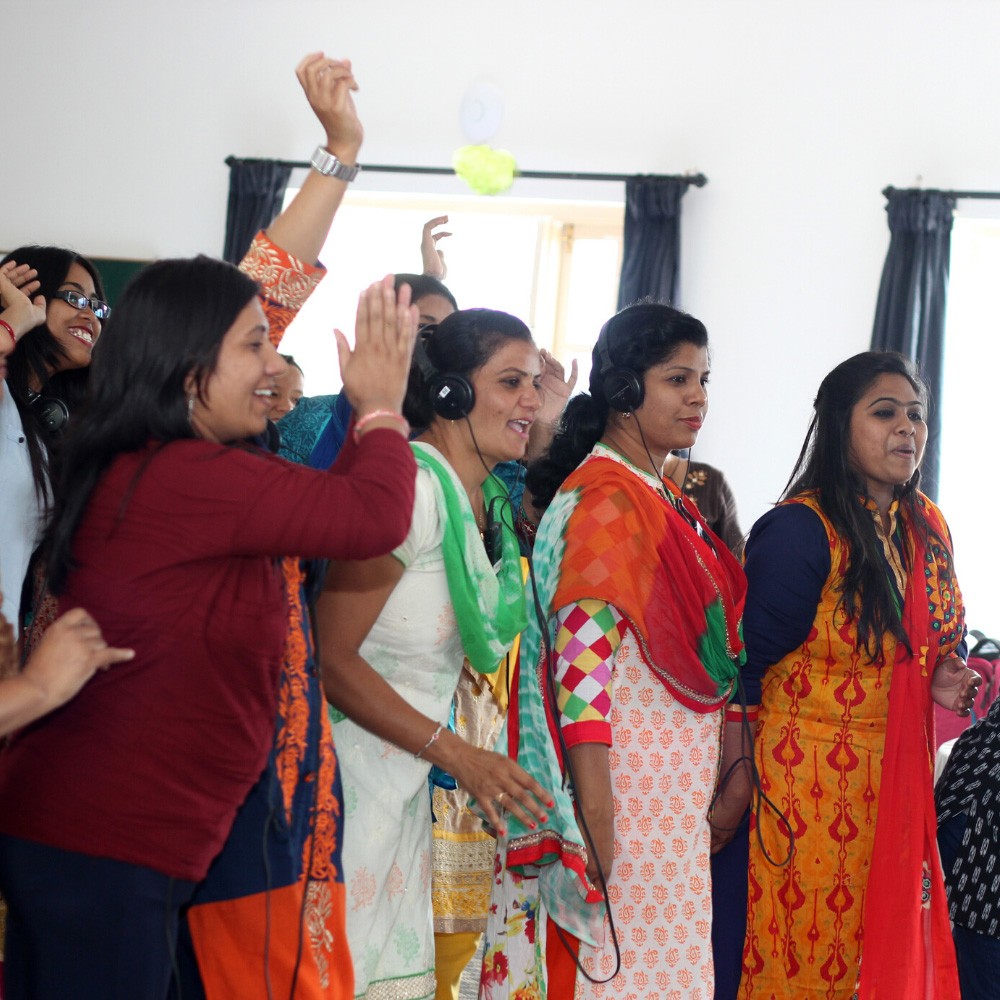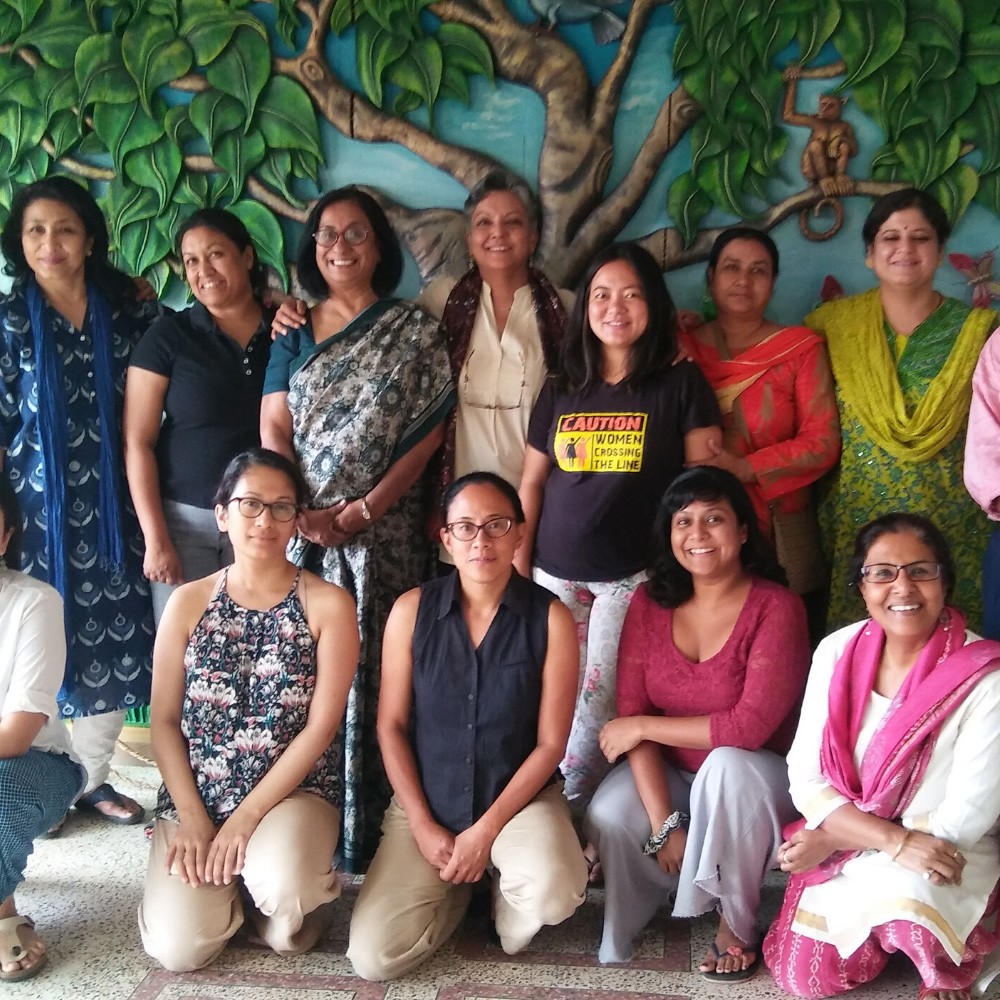As part of our work to facilitate and strengthen supportive networks for young women leaders (YWLs) in the global South, CREA established the SAYWLM (South Asia Young Women’s Leadership and Mentoring) program in 2017. SAYWLM was conceived to reinforce and sustain feminist organizations and the overall feminist movement by building cadres of young feminist leaders as strategic visionaries and change leaders.
The program is focused on South Asia – Bangladesh, India, and Nepal. The initiative has a unique model of structured feminist mentoring of young leaders which aims to enable young women leaders and activists to develop and practice alternative models of leadership, enabling them to access a safe space for experimenting with their own use of power, reflect on their feminist journey and further their vision of change for their organizations, movements, and communities.
SAYWLM is focused on South Asia, with the goal to build the feminist leadership capacity of 30 young women leaders (YWLs) working in 30 organizations in India, Bangladesh, and Nepal. Each YWL in turn supports and builds the leadership of at least 10 young women in their communities. A key component of SAYWLM is that it goes beyond training and capacity building of the YWLs. The first phase of the SAYWLM project was formally launched in April 2017 and came to a close in September 2020. CREA received funding to continue the project for another two years and SAYWLM Phase II was launched in April 2021 and will continue till September 2023. SAYWLM Phase II has 20 partner organizations across Bangladesh, India, and Nepal, a subset of the original 30 organizations.
The program’s first phase, which ran from 2017 to 2020, prioritized transformational changes in perceptions of both the YWLs and community YWLs on gender, feminism, and their own leadership. SAYWLM provided structured, ongoing feminist mentoring of the YWLs – with three mentors in each country facilitating the growth of the YWLs in their personal, organizational, and movement-building journeys. This was based on the belief that young women need support in negotiating all these three domains to become true feminist leaders. YWLs now understand the inherent biases and issues in their own advocacy and are further recognized by their communities as role models in leading social change. They have been equipped with skills such as clarity of thought, effective communication and public speaking, and mobilization skills. They have also been able to engage diverse actors and constituencies like teachers and students, community and religious leaders, government officials, police personnel, family members, and others in a wide range of public campaigns, community mobilizations, dialogues, and interventions.
As a young women leader [I] have a lot of beautiful memories with all of you. What a journey it was! I have learn[ed] how to communicate with community, how to represent myself and so much about feminism. By this 1.6 year [I] can say [I] have reach[ed] to the core of feminism. From the beginning of the project I have received two TOT which is a lifelong achievement of mine [I] can say. I have met all the beautiful ladies through this project, learn[ed] a lot of things, share all of my sorrows, able to know other’s story. Now [I] can practice feminism in my field and of course [I] achieve much more for my own life.
YWL | Bangladesh

The program’s second phase, which began in 2021, provides mentoring support to organization heads and ongoing mentoring for the YWLs. The goal for the second phase is to build on the efforts of the first phase by facilitating the growth of the YWLs and the heads of organizations (that the YWLs belong to) in their personal, organizational, and movement-building journeys by actively exploring and innovating in both theory and practice of feminist mentoring. In addition, the partner organizations receive a small fund to support a new movement-building initiative on the gaps the YWLs have identified in their organization’s present work or approach.
SAYWLM led to the creation of knowledge resources aimed at building the capacity of grassroot activists. CREA published two primers on understanding how power operates in society and impacts activism, and why movements matter. The publications “All About Power” and “All About Movements” are authored by Senior Advisor Srilatha Batliwala who was instrumental in setting up the SAYWLM project. The SAYWLM experience of building feminist mentoring in theory and practice has also been captured by CREA’s three-part guide “Feminist Mentoring for Feminist Futures”. This guide details our journey in feminist mentoring through the stories of SAYWLM’s Mentors and Mentees who share their challenges, triumphs, and overall experiences during the mentoring journey.



